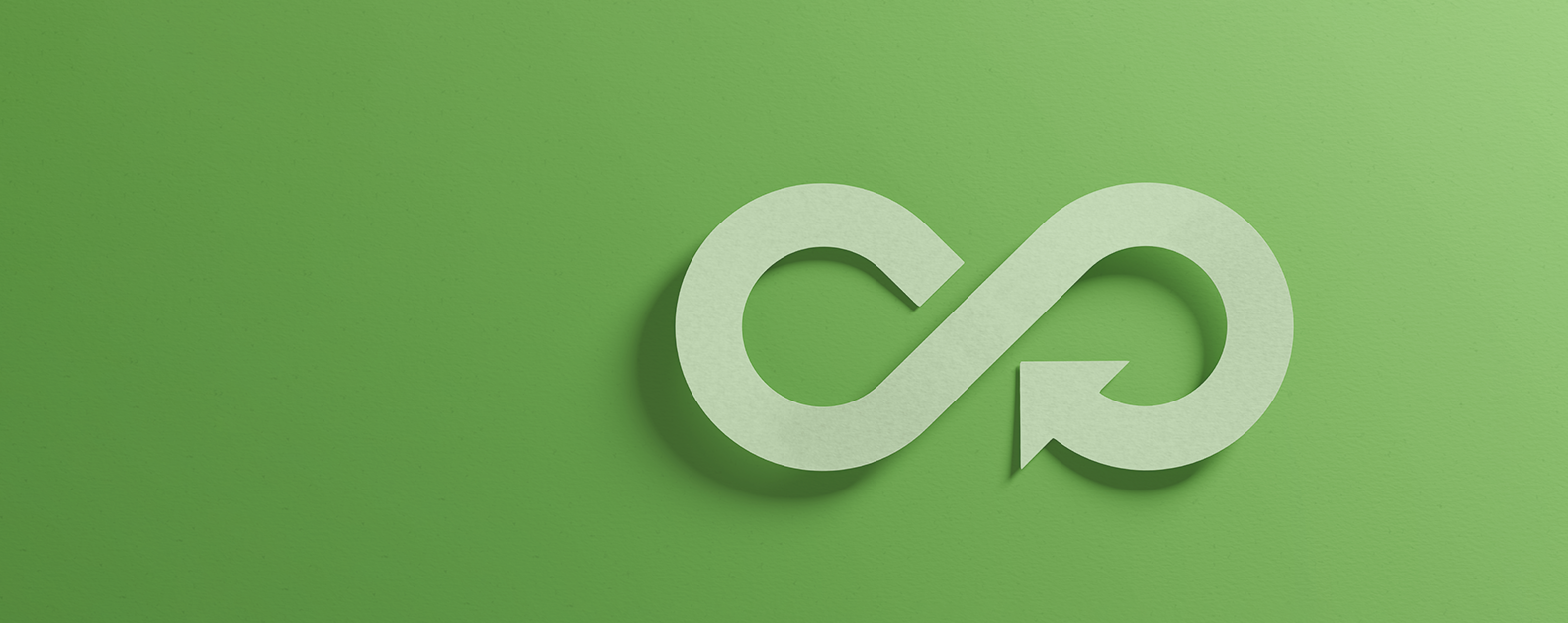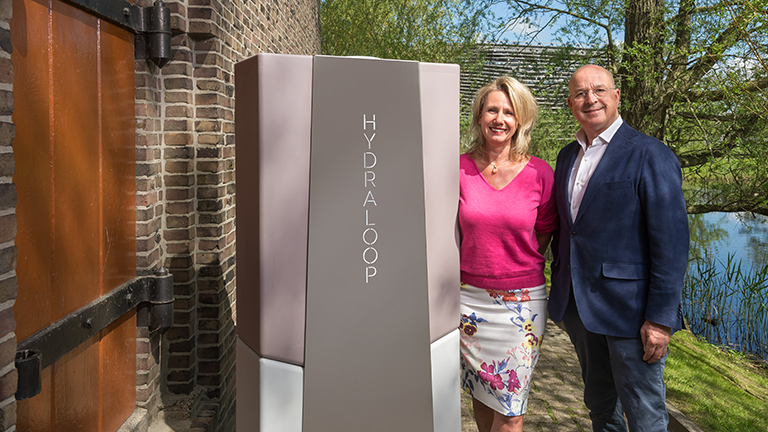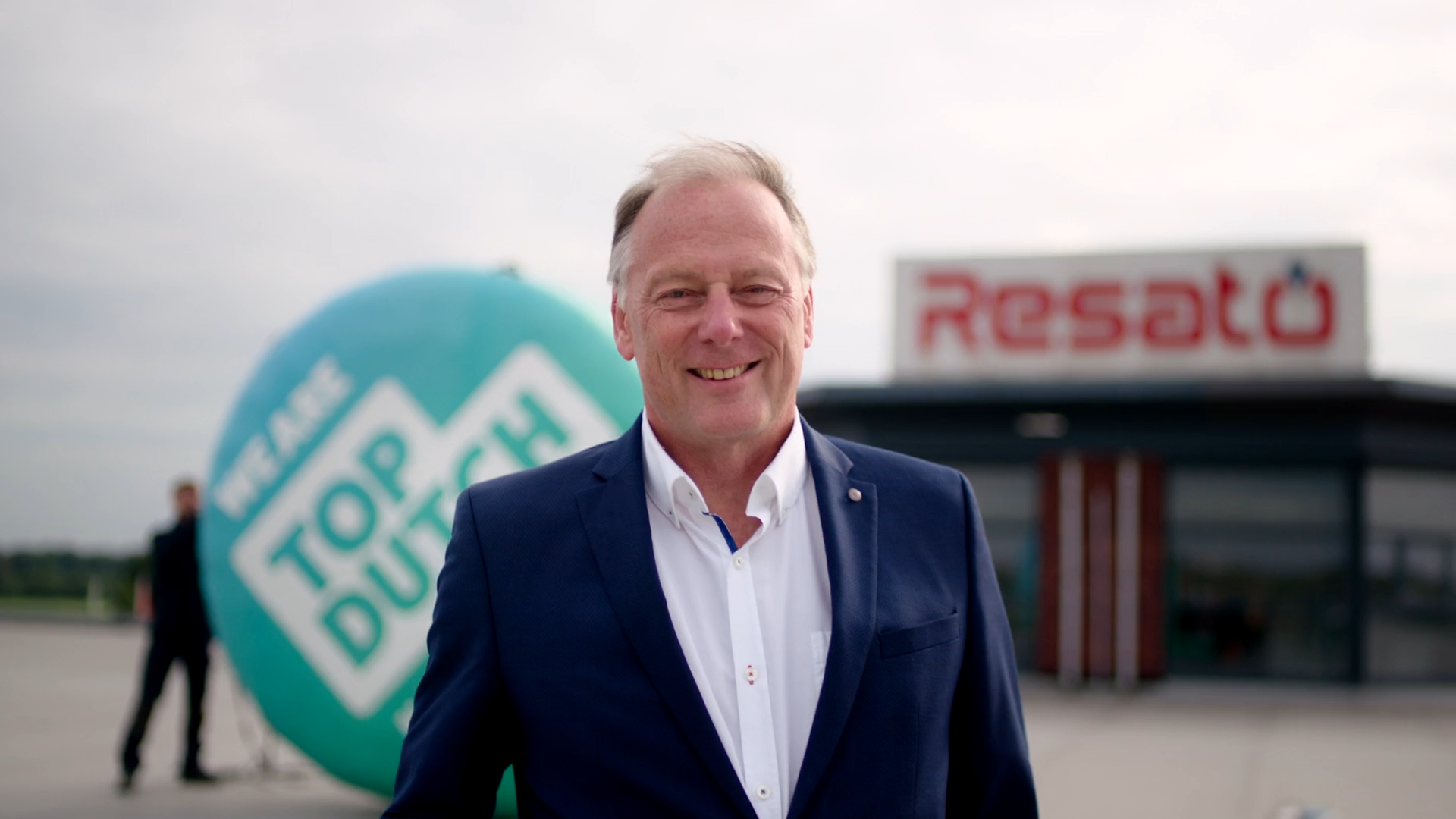Inside the mission to become Europe’s most circular economy
The TopDutch province of Friesland aims to be the most ‘circular’ economy in Europe by 2025. So what are the innovative and sustainable practices happening in the region to help it achieve that title?

This article was first published in the Northern Times, the TopDutch region’s English-language newspaper.
First things first: What is a circular economy, exactly? The term is growing in popularity, but it’s still not exactly a household name.
What is circularity?
Circularity refers to consumption which aims to minimize the impact on, and use of, scarce resources. Processes with this approach are more sustainable in the long run. According to the United Nations Development Program, a circular economy is therefore one that maintains high product value for as long as possible throughout the value chain. Or, put simply: why throw it away when you could still do something with it?
Collaboration from many different actors is needed to make that work: consumers, of course, but also businesses, (local) governments, knowledge institutions and NGOs. That is where Circular Friesland Association comes in: an assembly of about 140 entities that share a common goal of putting circularity on the political and economic agenda.
You can’t do it on your own. You need collaboration.
Sandra Arkesteijn, Communications Manager Circular Friesland
Circular Friesland
“You can’t do it on your own. You need collaboration”, says Sandra Arkesteijn, communications manager at Circular Friesland Association. The association began in 2016 as an idea of five people from different organizations and grew to make sure circularity gets into the local political and economic agenda. “Circularity doesn’t have to be expensive, you just have to be smart”, Arkesteijn says.
Besides being a knowledge sharing platform, Circular Friesland also aims to incentivize other companies to develop circular products and work on novel solutions. It can be difficult at times to persuade people that sustainability is important, admits Arkesteijn, but “if you’ve seen the light, you know that we can’t just go on like this”.
Through know-how, workshops, and analysis and plans, Circular Friesland pushes for sustainable and renewable economies in the province and beyond. Their ‘outside’ partners include the provinces of Groningen and Drenthe, as well as other organizations from various European states.
Circularity’s core principle is reducing waste by design, namely by making products that last longer, can be easily repaired, and are made of recyclable materials. That can be easier said than done, though. According to a leading Dutch sustainability think tank, Metabolic, a truly circular company needs more than clever product design.
Metabolic starts with a vision of a fully circular economy and outlines seven pillars of circular economy. According to them, firms and other entities should, for instance, pay attention to reducing CO2 emissions, renewable energy sources, biodiversity protection and human well-being in the processes and products.
Climate change
Those are rather ambitious goals – but Friesland as a province and the Circular Friesland Association are aiming high, too. Climate change is a big factor in the sense the urgency there: according to the UN, in the last 50 years, more than 60% of forests have disappeared, the Earth’s average temperature is the warmest in 100,000 years and about a million species are threatened with extinction.
Such existential issues require systemic solutions, as well as finding ways to break them down and tackle them on the local level: simple gestures multiplied by relevant policy can have exponentially bigger impact.

There are also many companies in the region that are members of Circular Friesland because of how seriously they incorporate circularity into their business practices. The Northern Times spoke with representatives of four such companies to give a better idea of what it means to be a circular company.
The TopDutch companies leading the change
Nedcam
“There are many, many possibilities to reach a circular economy: what we do is make big steps in technology that brings new opportunities for the industry”, says Erwin van Maaren, director of Nedcam, a firm in the wind industry, also producing yacht hulls.
According to Van Maaren, it is not only the firm’s ambition to be circular, but also, increasingly, the clients’ requirement. Thanks to new materials they have developed and a new, bigger and more precise 3D printer, Van Maaren says that they Heereveen-based firm and their suppliers can save resources and make sure they are recyclable. “Our goal is to change things from the start of the process”, he says, and he hopes that Nedcam can improve the materials and the production process even further.
Interfaca
Another local company dealing with circular materials is InterFaca, which is based in Drachten and designs and installs wooden facades. According to sales and marketing manager Catherine van den Meer, Interfaca emphasizes the environmentally-friendly qualities of wood, especially when sourced from well-managed forests which meet sustainability standards.
Van den Meer acknowledges that while it may seem counterintuitive, cutting down trees to build new materials with wood can actually be beneficial for curbing climate change in the long run. “During the growth of wood, CO2 is sequestered and it remains stored as long as the wood is in use. In addition, little energy is consumed during the processing of wood, and thus little CO2 is emitted.”
Our goal is to change things from the start of the process.
Erwin van Maaren, Director of Nedcam
Opnieuw!
Instead of producing new sustainable materials, it can be more environmentally-friendly to reuse existing materials instead. So it may come as no surprise that another northern company based on that strategy calls itself Opnieuw! (which means “again” or “anew” in Dutch).
The company’s headquarters are in Buitenpost, and they specialize in supplying office furniture consisting of old desks, train seats and other resources they have at hand. Companies turn to them for designing or refurbishing an office space, or even renting office equipment for a fixed amount of time, with Opnieuw! taking care of the repairs when needed.
Hydraloop
When it comes to resources like water, another approach to reusing is necessary. Hydraloop, a growing, international firm with Dutch headquarters in Leeuwarden, uses a novel technology to clean grey water so that it can be used again in the household. It uses sedimentation, foam fractionation, UV light and other methods – but no chemicals and no filters.
Barbara Mounier, the company’s head of communications, points out that Hydraloop’s product is self-cleaning and low maintenance – with almost no waste produced. Water recycling is important for saving water, which is becoming more precious not only during increasingly hot and dry summers, but also for economizing energy that comes with pumping fresh water.
In the ’50s, washing machines were completely new, but now it’s an absolute standard...We want and believe that this will be the case with water recycling.
Sabine Stuiver, CMO and co-founder of Hydraloop
According to a new, peer reviewed study commissioned by Hydraloop, recycled water has less environmental impact and lower costs than any other types of water – mainly due to the energy used in water transportation – says Sabine Stuiver, the CMO and co-founder of the firm.
Although Stuiver is convinced about the positive environmental impact their product and water recycling has on the environment, she also recalls troubles with implementing their solutions. “Right now, all the modern legislation and standards based on the technology that was in place 30 or 40 years ago. We didn’t just create a product, we’re also having to change the old standards and legislation all over the world to prepare them for new, innovative and sustainable technologies.”
Much of what is happening in Friesland in terms of circularity sounds novel now. “In the ’50s, washing machines were completely new, but now it’s an absolute standard to have washing machine piping in every home”, Mounier points out. “We want and believe that this will be the case with water recycling. It needs a couple of years to get momentum but then it will become a standard”.

Be it recycling water, reusing furniture or massive 3D printers, Friesland is already finding innovative ways to twist the often rigid economic lines into a circle and help the north take the title as one of the most circular economies in Europe – especially if laws and common practices begin to follow the example of these local, sustainability-minded initiatives.


